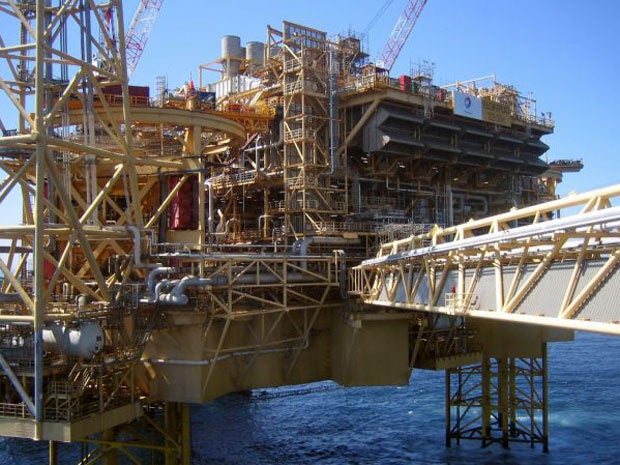Attempt to stem gas leak at oil rig may take months

Your support helps us to tell the story
From reproductive rights to climate change to Big Tech, The Independent is on the ground when the story is developing. Whether it's investigating the financials of Elon Musk's pro-Trump PAC or producing our latest documentary, 'The A Word', which shines a light on the American women fighting for reproductive rights, we know how important it is to parse out the facts from the messaging.
At such a critical moment in US history, we need reporters on the ground. Your donation allows us to keep sending journalists to speak to both sides of the story.
The Independent is trusted by Americans across the entire political spectrum. And unlike many other quality news outlets, we choose not to lock Americans out of our reporting and analysis with paywalls. We believe quality journalism should be available to everyone, paid for by those who can afford it.
Your support makes all the difference.It could take another six months for oil engineers to drill a relief well to the leaking gas field beneath an offshore platform in the North Sea.
A two-mile exclusion zone for shipping, and a three-mile exclusion zone for aircraft, have been imposed around the Elgin Well Head Platform and Rowan Viking Drilling Rig situated 150 miles off the coast of Aberdeen on the east coast of Scotland. The rig itself was evacuated after toxic gas reached dangerous levels and became highly inflammable
The incident occurred on Sunday during work to plug and abandon the gas well, which was no longer in production. Although all nearby wells have been shut down, gas continues to seep to the surface where a six-mile "light sheen" of condensed gas has been spotted on the water nearby.
Total, the oil company that operates the platform, said it will drill the relief well to the leaking well head, which could then be blocked with a concrete plug similar to the plugging technique used to stem the Deepwater Horizon spill in the Gulf of Mexico.
Another possibility is to try to block the flow of gas by injecting mud back down the existing gas pipeline leading to the well head. However, the company is hoping that the gas leak will begin to peter out over the coming days or weeks, which it said is possible given that the gas field was already depleted when the accident happened.
"The gas is flammable but the platform power was turned off to minimise risk of ignition, but clearly there is a risk," said David Hainsworth, Total's manager for health, safety and environment.
"We have taken away a series of risks but there is always a possibility, it's low but you never say never."
Join our commenting forum
Join thought-provoking conversations, follow other Independent readers and see their replies
Comments